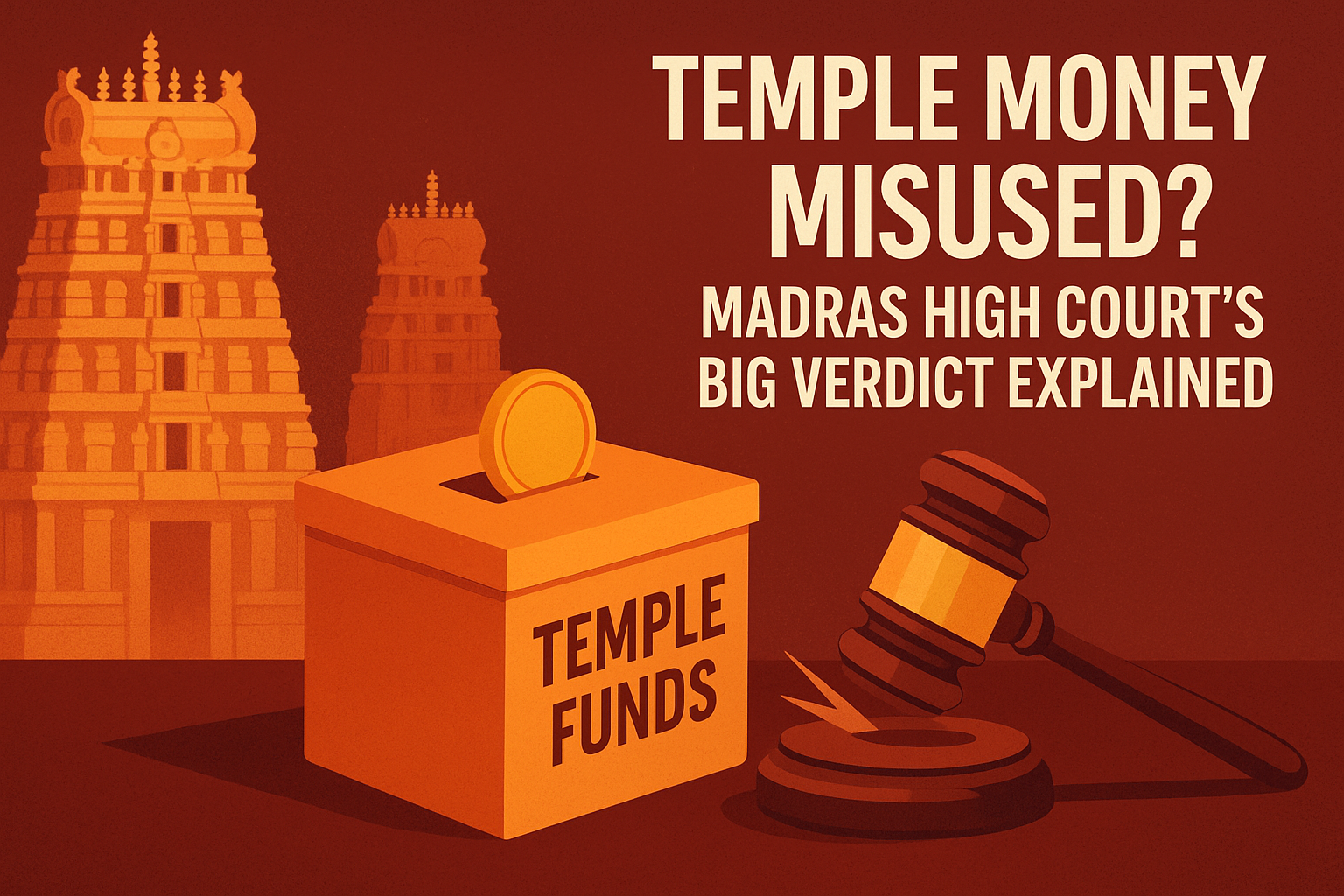Case Background: How Madras High Court Temple Funds Became Contested
when the Madurai Bench held that money collected in the name of the deity isn’t public revenue it belongs to the temple, and cannot be pulled into government building projects. Donations, the Court said, must support temple religious life, not state-led construction on or off shrine property. The case began with petitions challenging a series of orders allowing money from various shrines, including Palani’s Arulmigu Dhandayuthapani Swami Devasthanam, to be spent on building marriage halls on temple lands.
Devotees’ Rights at Stake in Madras High Court Temple Funds Case
Petitioner Rama Ravikumar argued under the Hindu Religious and Charitable Endowments (HR&CE) Act that devotee contributions in Madras High Court temple funds are meant for religious purposes rituals, feeding the poor, and maintaining temple life not for commercial ventures far from the shrines themselves.
State’s Defense and the Debate Over Madras High Court Temple Funds
The state’s legal team tried to justify using Madras High Court temple funds by arguing that marriage is a central part of Hindu religious life and that affordable wedding venues could help communities celebrate important rituals. They said helping Hindus host ceremonies was itself a kind of religious or social work but the bench questioned if building and renting out halls for a fee really served the shrines’ original purpose. Officials claimed Madras High Court temple funds used for constructing halls would be reimbursed, benefiting Hindu families. But the court saw this as a stretch; money earmarked for worship, it held, must not cross into profit-making territory.
Judicial Findings: Why Commercial Use of Madras High Court Temple Funds Was Barred
Justices S.M. Subramaniam and G. Arul Murugan listed several issues:
- Marriage halls operated for rent fail to meet the Act’s “religious purpose.”
- Projects were clearly commercial, not charitable.
- The deity is legally a minor, so the court must watch over Madras High Court temple funds.
- The Supreme Court had already barred commercial use of Madras High Court temple funds in earlier cases.
Accountability Measures and Madras High Court Temple Funds Recovery
With all five government orders struck down, the bench mandated full recovery of Madras High Court temple funds wrongly diverted to government projects. Officials who signed off on or supervised the transfers have been told to restore all diverted funds to the affected shrines.
Conclusion: Devotional Trust and Madras High Court Temple Funds: Ruling’s Impact
At its heart, this decision is less about paperwork and more about the faith behind every offering. The judges pushed back against the idea that Madras High Court temple funds could be a quick fix for budget gaps, making it clear those resources are part of a living tradition devoted gifts meant for the deity’s service. Their ruling looked ahead, insisting that temple wealth has to be preserved not just for today, but for all the generations and rituals yet to come.
Author Information:
By Karthikeyan Ganesan, a law student from KKC College of Law, reporting on law and technology for Nyayasphere. Karthikeyan always likes to stay updated with current trends and important information regarding the law and cases across the country.

